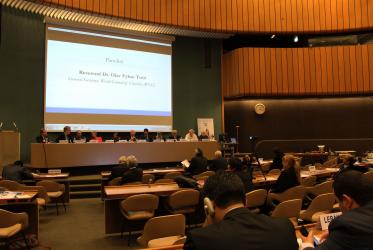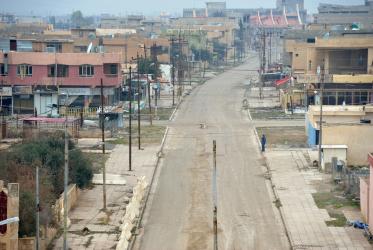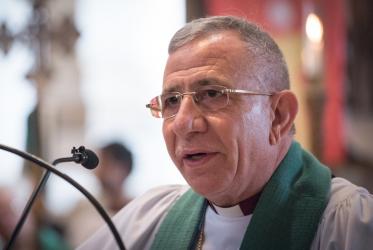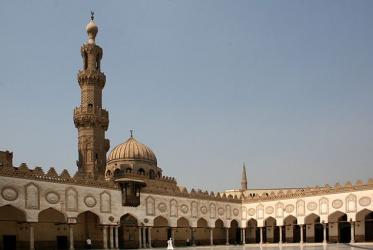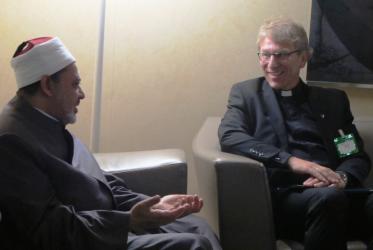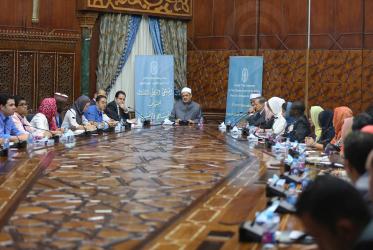Displaying 81 - 100 of 146
29 March 2017
Islam and Christianity: finding the common ground
16 March 2017
Praying for one another, even when we disagree
02 March 2017
Bishop Younan awarded Niwano Peace Prize
22 February 2017
Strong bridges needed more than ever
21 December 2016
“Walking Together” project explores pilgrimage traditions
19 December 2016
Grand Imam calls for collaboration against violence and poverty
06 October 2016
Al-Azhar: navigating the difficult centre
06 October 2016
WCC welcomes Grand Imam of Al-Azhar
01 October 2016
Dialogue flourishes between WCC, Muslim Council of Elders
30 September 2016
WCC general secretary reflects on peace in Palestine and Israel
20 September 2016
Seminar will address youth engagement, religion and violence
19 August 2016
Facilitating peace with passion
26 July 2016

